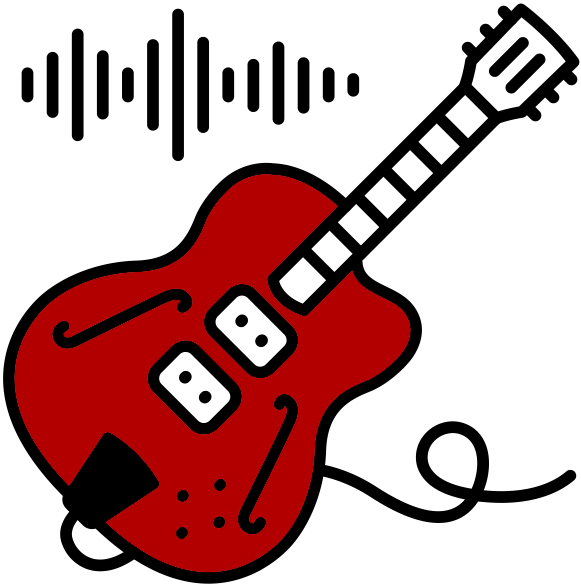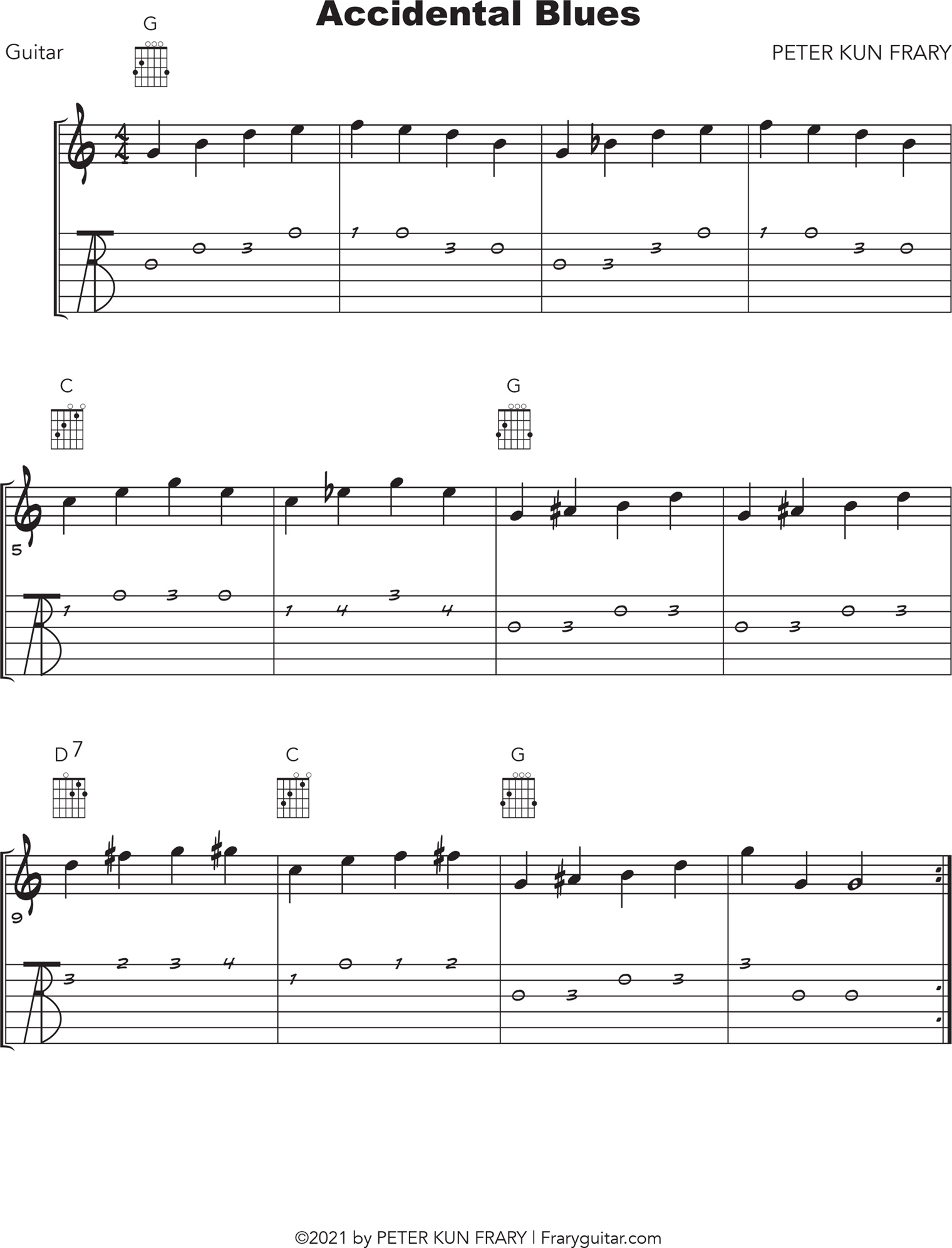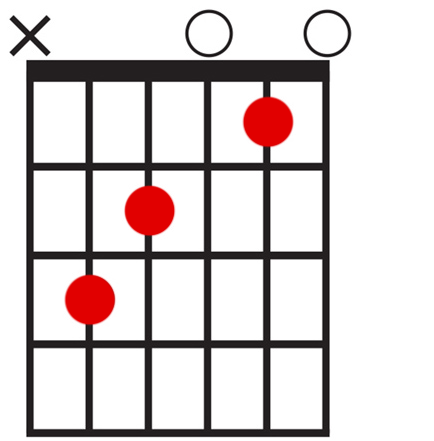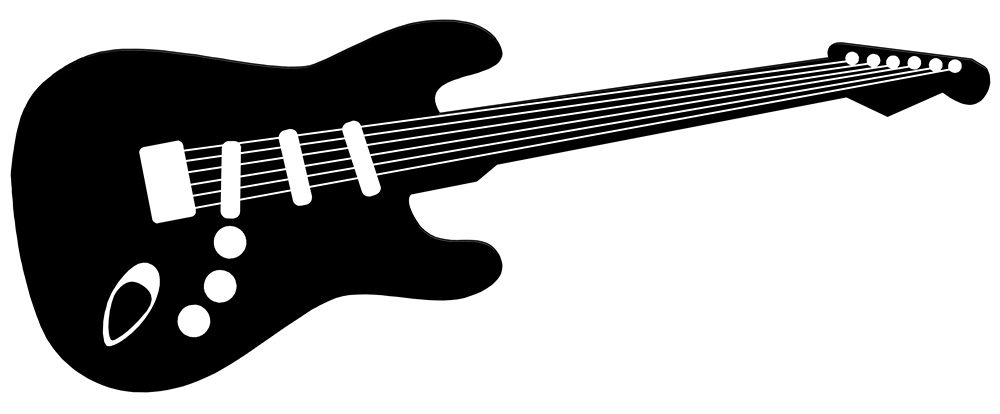|
|
||||||||||||||||||||||||||
.
|
G |
|||
C |
G |
||
D7 |
C |
G |
In the above graphic, row are read from left to right. Boxes represent measures and letters stand for chords. This pattern is the road map for all blues pieces, including today's assignment.
 Accidental Blues
Accidental Blues
Melody
The Accidental Blues marries the blues form with accidentals. The challenge of the melody is mostly about getting used to the new symbols and the sound of chromatic notes (notes out of the key). If you're reading TAB, your life will be a little easier since there are no new symbols!
Play the Melody Now!
Begin by getting the sound of the Accidental Blues' melody in your ears:
Accidental Blues | Melody only (no chords) | Peter Kun Frary
Now practice the melody of the Accidental Blues until smooth. Play along with the audio track or video to help shore up your rhythm.

Once the melody of the Accidental Blues is smooth, work on the chords.
 Chords
Chords
The chords of the Accidental Blues are mechanically simple. Changing chords in the right place is the main challenge. For example, the first chord, G, is played for four measures—sixteen beats—before changing to C. How do you keep track of when to change? Simply count 1-2-3-4 four times and change to C.
The Down 2X Strum—strum on beats 1 and 3—is recommend for this piece.
Accidental Blues | Chords only
Accidental Blues | Down 2X strum sheet



The Down 2X Strum is a good choice because it leaves space for the melody to shine and brings out the natural metrical accents. The Flat-Four Strum also works if you keep it gentle enough to avoid covering the melody.
Accidental Blues Down 2X Strum Demo | Peter Kun Frary
Melody and Chords Together
Finally, the Frary Guitar Duo puts together both melody and chords in our tiny office performance of the Accidental Blues. As usual, Peter is free stylin' the chords, but they're the same chords as written, just embellished and jazzed up a little.
Accidental Blues | Melody and chords | Frary Guitar Duo
Accidental Blues | Remix with swing and jam. | Peter Kun Frary

Need Help?
Do you need help? Don't be shy about asking questions. For guitar issues, make an office or Zoom appointment and we'll help you figure it out.
Download | Accidental Blues PDF

Vocabulary
blues, 12-bar blues progression, blues form, chromatic notes
 |
 |
 |
©Copyright 2023 by Peter Kun Frary | All Rights Reserved

